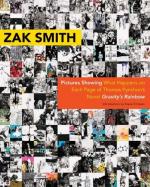|
This section contains 2,986 words (approx. 10 pages at 300 words per page) |

|
When we read a Pynchon text we may be disconcerted by it, but we usually find ourselves comfortable with at least one of its elements: setting. In fact, Pynchon's mise en scène may be the only reason for calling his books novels. He is as archeologically precise about places and things as Flaubert, although he should probably be compared to the Flaubert of Salammbô. In that text, Flaubert transports Emma Bovary's problems back to Carthage, rendering both Emma and the setting abstract. Pynchon, on the other hand, creates a false familiarity in the mind of the reader which makes him forget that what he is reading is not a study of people in a historical setting but the clash of personified ideas surrounded by the things of the twentieth century. Flaubert and Pynchon are opposites that converge: Flaubert makes the alien familiar by recreating the problems of...
|
This section contains 2,986 words (approx. 10 pages at 300 words per page) |

|


